Sticks and stones
May break my bones
But words will never hurt me
In William Gibson’s play The Miracle Worker, Annie Sullivan despairs of ever reaching the blind and deaf little girl, Helen Keller. Annie makes a speech in Act Three about the importance of words and language. made all the more poignant because Helen is sitting there, playing, unaware of the anguish Annie reveals. “. . .words, why, you can see five thousand years in a light of words, everything we feel, think, know– and share, in words, so not a soul is in darkness, or done with, even in the grave.”
Harper Lee died Feb 19, 2016. She was eighty nine years old. My mother was also born in 1926, just about forty miles down the road from Monroeville, Alabama, where Nelle Harper Lee grew up. I always liked that synchronicity. Of course, I was also born just down the road from Harper Lee’s home town. I can’t remember the first time I read To Kill a Mockingbird. I know that my first, oldest copy is a 1962 paperback that is falling apart. As an adult, I bought a hardback copy, the fortieth anniversary edition. I also have a first edition, twentieth printing.
I can quote lines and even paragraphs from this book, as many who count this among their favorite books can. “The Truth is not in the Delafields.” “Don’t you say ‘hey’ to me, you ugly girl. You say ‘good afternoon, Miss Dubose’.” “He would be there all night, and he would be there when Jem waked up in the morning.” “Miss Jean Louise, stand up. Your father’s passing.”
And there is this paragraph, the one that makes us see and smell the setting of the story. “Maycomb was an old town, but it was a tired old town when I knew it. In rainy weather the streets turned to red slop; grass grew on the sidewalks, the courthouse sagged in the square. Somehow, it was hotter then: a black dog suffered on a summer’s day; bony mules hitched to Hoover carts flicked flies in the sweltering shade of the live oaks on the square. Men’s stiff collars wilted by nine in the morning. Ladies bathed before noon, after their three o’clock naps, and by nightfall were like soft teacakes with frostings of sweat and sweet talcum.”
And the introduction to one of the most unique and beloved characters in literature, Dill.
“Sitting down, he wasn’t much taller than the collards. We stared at him until he spoke.
‘Hey.’
‘Hey yourself,’ said Jem pleasantly.
‘I’m Charles Baker Harris,’ he said. ‘I can read.'”
And the voice, the point of view, one that came from an adult distance but sounded pitch perfect true to every note of childhood, that voice shaped the entire novel, telescoping from a little girl named Scout back to the grown up who retells with great fondness a story we all relate to, because there is so much in the telling that is similar, even universal, about the play and the ideas and the outlooks of small children.
Well, that voice, that telescope, is gone now. Nelle was buried quickly on February 20, quietly, privately, surrounded by only a few relatives and friends, just as she lived.
To Kill a Mockingbird became an instant classic, on the bestseller list for eighty eight weeks, a Pulitzer Prize winner, and became a classic movie as well, with a luminous screenplay written by Horton Foote, who managed to get the tone exactly right. The book has sold well over thirty million copies worldwide, is the novel that is taught in school more than any other, and served as inspiration for a generation of lawyers who wanted to be like Atticus, and a generation of feminists who emulated the spunk feistiness of Scout. The American Library Association lists it as one of the one hundred best books of the twentieth century. I find those parameters to be narrow.
Surely, this novel has influenced and shaped me as much as any religion. In a way, To Kill a Mockingbird served as a Bible for me. I can quote passages from the Bible, of course. But Scout and Jem, Atticus, Calpurnia, Uncle Jack and Aunt Alexandra, Miss Maudie and Miss Rachel Haverford. And of course, the Radley family. The spooky, sinister stories told by the children of the town turned Boo Radley into a ghost, a legend, and a source of endless speculation and entertainment.
Miss Lee has herself become a legend, a literary icon, one with a spooky history of reclusiveness, friend and help mate of Truman Capote, her childhood friend, the writer who wrote one book and never another.
As I framed similarities between my mother’s childhood and Harper Lee’s, I also shaped parallels between their later lives. My mother gradually lost her sight to macular degeneration. So did Miss Lee, who lost her hearing as well. I became a writer as much to please my mother, to make her proud of me, as I did to emulate Harper Lee, who was my literary hero. When my first novel was published, I sent a copy to Miss Lee, through her agent. I received a handwritten note in reply, encouraging me to continue with my writing endeavors, and informing me that sadly, she could no longer read books with normal font, because of her worsening eyesight. I treasure that letter.
I once snuck into the famous courthouse, long before it became a museum. I climbed to the top of the clock tower and looked out over Miss Lee’s town. It looked pretty much like my own hometown, and besides paved streets, not so different from that time when Nelle ran and played, read, and made up stories.
I don’t know why I feel as sad and lost today as I did when my mother died. I never met Harper Lee, never even saw her despite many trips to Monroeville. Her book, the one that I reread and memorized, the one I count as a better friend to me than most people, the book that compelled so many children to become lawyers and encouraged little girls to retain their spunkiness, the one that remarkably, said everything there was to say about small towns, race, courage, and being kind, just on the cusp of the civil rights movement of the nineteen sixties, that book, those words, still light my way, as from the first time I read them, lying on my bed beside an open window. Words can enlighten us. sure. They can live with us, in us, and they can shape and inspire and entertain. Miss Lee’s words did all of that for me.
Addendum: Here is the eulogy read at Miss Lee’s funeral service on Saturday, Feb 20, 2016, delivered by Dr. Wayne Flynt, historian, Alabama native, and lifelong friend of Miss Lee.
http://www.al.com/living/index.ssf/2016/02/read_the_eulogy_for_harper_lee.html
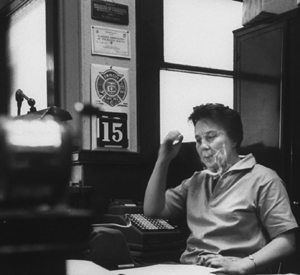
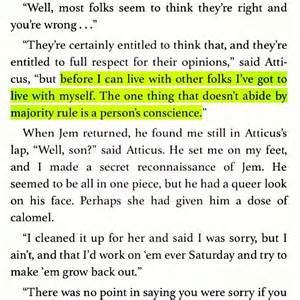
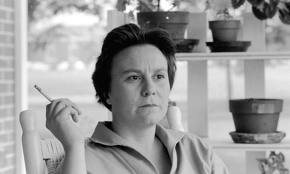
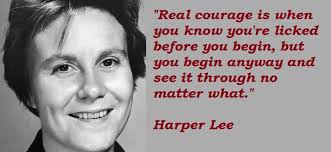
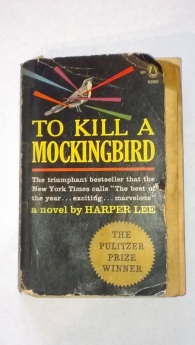





You write beautifully. You do both women proud.
LikeLiked by 1 person
Thank you!
LikeLike
This is a gorgeous post. It gave me good chills. I have seen the movie, of course, but am ashamed to admit that I have not read the book. A dear friend recently gave me a copy and I will start it this week. You have illustrated to me what I have been missing. Thank you.
LikeLike
That’s a good thing. There is a lot of humor in the book, as sly as Harper Lee, renowned for her wit.
LikeLike